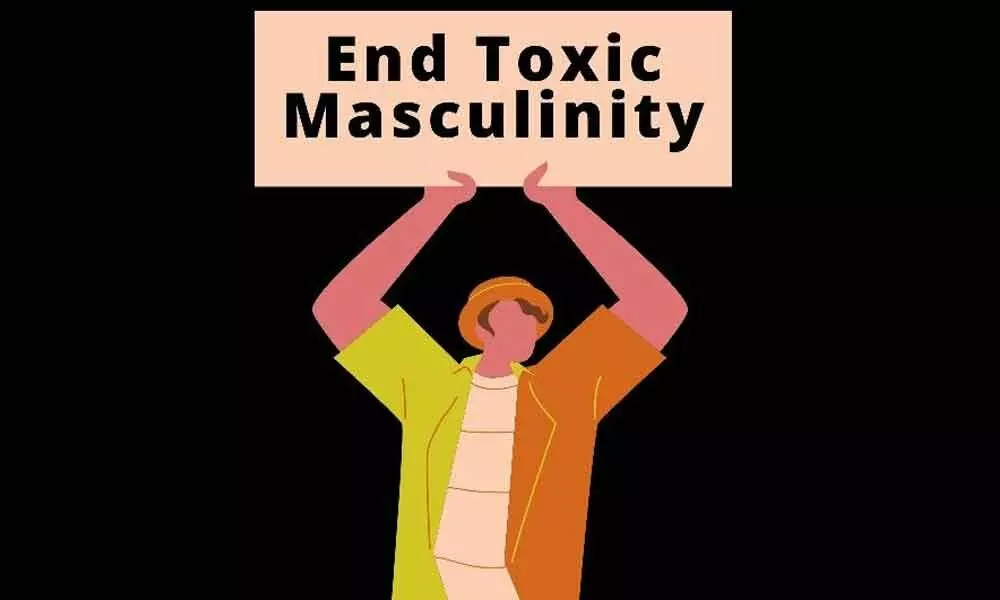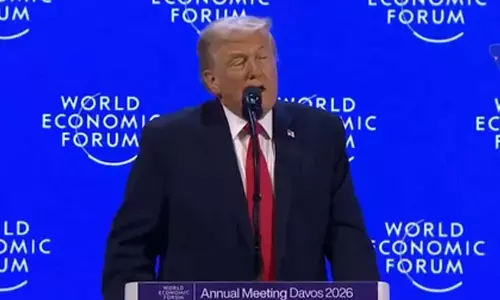For a better world, toxic masculinity must go

For a better world, toxic masculinity must go
Toxic masculinity, in fact, turns out to be violence against men themselves
MASCULINITY is plastered all across popular culture and our immediate contexts. From muscled up, hypermasculine film protagonists to the revered male head of the family, definitions of manliness are enacted across all contemporary spheres of life.
Yet, there are raging debates about whether these fixed categories of manhood do any good to society and to individuals who endorse and perform them. This comes at a time when the mental health issues of men and rates of male suicidality are prominently displayed in statistics. What masculinity does to people and the structures we inhabit is thus, a worthy question to examine.
Sociologist Michael Kimmel, in The Gendered Society, pointedly remarks that virtually all the violence in the world today is committed by men. Yet, this observation is often overlooked in analyses of violence because of prominent definitions which often invoke biology to justify and rationalise male aggression.
Biological evidence is, however, scarce and there are cultures in which men are not known to be violent or aggressive. Masculinity, then, has to be implicated as a social and cultural construction that makes men act in harmful ways. Toxic masculinity, a term that enjoys much currency in today's day and age is the issue at hand.
Toxic masculinity, in fact, turns out to be violence against men themselves. The pressure to be the breadwinner of the family, to stay unemotional while going through difficult times, to conform to a bodily idea of male virility and to participate in regressive male cultures of misogyny, homophobia and aggression take a tremendous toll of men who are allowed very limited ambits for self-fashioning.
It is undeniably harmful to others as well, as in a masculine drive to assert dominance, men can commit acts which can compromise dignities of women, LGBTQ individuals and cisgendered, heterosexual men as well. Hypermasculine competitiveness and chauvinism can disrupt familial and social harmony and instigate spirals of suffering and violence.
The impact on men themselves is alarming. Male sexual assault is reported much lesser because of traditional ideas of shame associated with it. Similarly, men seldom discuss their vulnerabilities even in intimate circles and keeping themselves in a constant state of repressing emotions can have detrimental impact.
Male suicidality is an alarmingly real phenomenon, as are unaddressed mental health troubles of men. A report by the Center for Disease Control and Prevention showed how significantly more men died of opioid overdose than women from 1999 to 2018.
Men need to find alternative ways of self-expression and self-realization, as socially endorsed masculinities do little justice to their struggles and subjectivities. Unachievable standards of manhood must be dismissed, and toxic traits like anger and emotional repression done away with.
In this regard, we cannot simply expect men and boys to act individually but we must alter the sociocultural domain we inhabit with them. As Wall & Kristjanson note, the socialisation of masculine ideals starts at a young age and defines ideal masculinity as related to toughness, stoicism, heterosexism, self-sufficient attitudes and lack of emotional sensitivity.
Our participation in masculine cultures has to be replaced with an investment in countering hegemonic masculinities.
Gender is a social construct and accordingly, individuals should be allowed to fashion their own gendered identities based on their innate proclivities. We must go beyond the gender binary to let men look outside traditional categories of masculine and non-masculine and let them find their own definitions.
This would include stopping chastising men for not working to be the breadwinner of the family, telling boys to not engage in 'feminine' acts and demanding manly attributes from men socially. There is a necessity to undo gender itself to counter toxic masculinity, which is a heavily gendered phenomenon.
The other simultaneous step in the right direction would be to create environments of empathy and acceptance for boys and men. These have to function as spaces where men can unburden themselves from societal expectations, where they can be 'unmanly' without shame and express anxieties, doubts, fears and vulnerabilities.
This has to be accompanied by structural and policy changes, such as greater resource allocation to creating facilities for men's well-being and programmes and campaigns decrying the ravages of traditional masculinity.
Men have to be empowered through spaces of healing and opportunities for recreating themselves in nonviolent ways. Social change can go a long way in ensuring such heartening transformations.
On the whole, overcoming stereotypical straitjackets of gender and manhood is a social necessity. To quote Glennon Doyle, "Our children are too vast to fit themselves inside these rigid, mass-produced bottles. But they'll lose themselves trying."
All individuals, including men suffer from the perpetuation of a violent, non-emancipating order that creates harmful masculinity and cuts boys and men to size, limiting the vast potentials of goodness they hold.
With a reliance on feeling, accepting and expressing our organic humanity, we can allow our men to foster socially empowering self-definitions and build a harmonious society, where communion with each other will not be a distant dream. Toxic masculinity must go, if we owe our boys, men and ourselves a better world.
(The author is Founder, Upsurge Global, and Senior Advisor, Telangana State Innovation Council)














